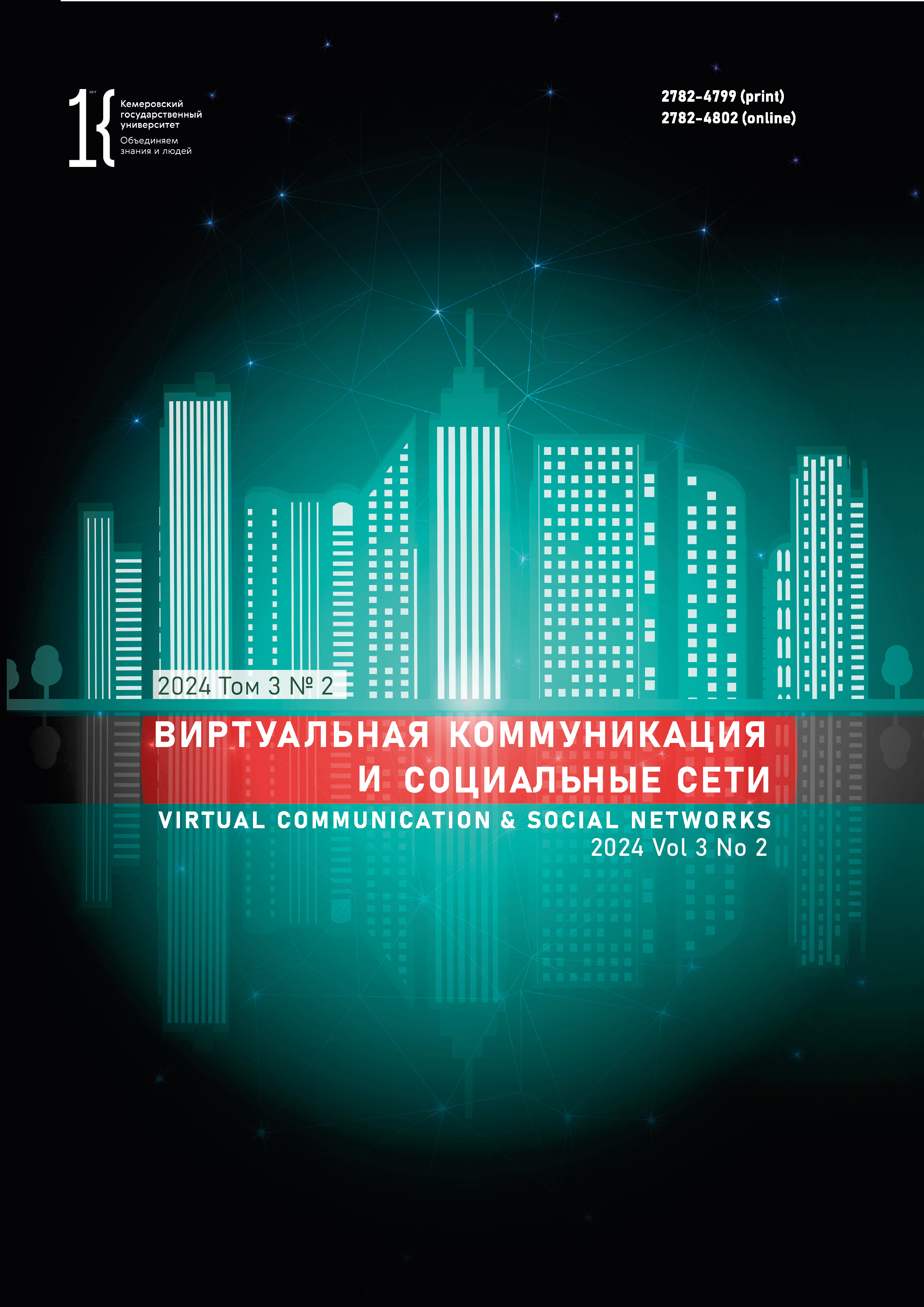Minsk State Linguistic University
Minsk, Belarus
English-language environmental speech has its own linguistic features. Ecological discourse is a relevant, self-sufficient, and highly identical communication continuum. This article introduces a corpus analysis of the English-language environmental discourse with its linguistic patterns and functional interpretation. The texts were considered not as static linguistic objects, but as a system of functional features in speech. The English-language research material was authentic and featured various environmental issues. Corpus analysis is a popular and reliable tool for big linguistic data while the corpus-discursive methodology proved to be an effective interdisciplinary tool. It was applied to the EuroNews Green Corpus, aggregated from 506 English-language texts on environmental issues. This innovative type of corpus can be qualified as instrumentally independent. The research proved the effectiveness of universal case managers or case shells of open architecture, e.g., Sketch Engine. Not only did it manage to collect the data, but also performed quite a complex structure analysis, interpreting, and discourse modeling. Corpus linguistics is looking for qualitatively new opportunities to identify complex linguistic relations. The case study provided a comprehensive description of environmental discourse as an object of linguistic research. Based on statistic details, the authors analyzed the categories of tokens, keywords, and terms to structure them as lemmas, collocations, and n-grams, which were presented as metadata. The metadata modeling provided concordances, thesauruses, and frequency glossaries. Environmental discourse had a pronounced lexical and semantic uniqueness resulting from specific ecological terminology. However, the multidimensional corpus analysis revealed an extremely low frequency of the key concept of ecology. Thus, this corpus study of the English-language ecological discourse demonstrated a good potential for further linguistic research.
corpus research, ecological discourse, instrument-independent corpus, linguistic regularities, functional features, statistics, metadata
1. Baranov A. N. Introduction to Applied Linguistics. Moscow: URSS, 2021, 368. (In Russ.)
2. Barkovich A. A. Functional discourse analysis: Models of formalization and structurization. Trudy BGTU. Seriia 4: Print- i mediatekhnologii, 2022, (2): 29–35. (In Russ.) https://doi.org/10.52065/2520-6729-2022-261-2-29-35
3. Barkovich A. A. Computer-mediated communication: Potential for metalexical significance. Proceedings of Petrozavodsk State University, 2015a, (7): 38–43. (In Russ.) https://elibrary.ru/uxkarj
4. Barkovich A. A. Functionality of the "communicational–communicative" dyad: Discursive aspect. Tomsk State University Journal of Philology, 2015b, (5): 37–52. (In Russ.) https://doi.org/10.17223/19986645/37/3
5. Zaliznyak A. A. "Russian nominal inflection" with the application of selected works on the modern Russian language and general linguistics. Moscow: YaSK, 2002, 752. (In Russ.)
6. Zakharov V. P. Prolegomena to corpus linguistics. Questions of psycholinguistics, 2016, (28): 150–161. (In Russ.) https://elibrary.ru/wddxwl
7. Manik S. A., Smirnova V. L. Contemporary approaches to analysis of complexity of educational text based on data of English textbooks. Vestnik Ivanovskogo gosudarstvennogo universiteta. Serija: Gumanitarnye nauki, 2022, (2): 53–63. (In Russ.) https://doi.org/10.46726/H.2022.2.7
8. Plungian V. A. Corpus as a tool and as an ideology: lessons of modern corpus linguistics. Russian Language and Linguistic Theory, 2008, (2): 7–20. (In Russ.) https://elibrary.ru/mtbalv
9. Dream stories: Corpus study of oral Russian discourse, eds. Kibrik A. A., Podlesskaya V. I. Moscow: YaSK, 2009, 735. (In Russ.) https://elibrary.ru/rbonut
10. Filippova T. A. Concept and main characteristics of ecological discourse (by the material of English-speaking media). Izvestia of the Volgograd State Pedagogical University, 2018, (2): 97–101. (In Russ.) https://elibrary.ru/yqxpnk
11. Alexander R., Stibbe A. From the analysis of ecological discourse to the ecological analysis of discourse. Language Sciences, 2014, 41: 104–110. http://dx.doi.org/10.1016/j.langsci.2013.08.011
12. Biber D., Conrad S., Reppen R. Corpus linguistics: Investigating language structure and use. Cambridge: Cambridge University Press, 1998, 300.
13. Corpora and Discourse. Proceedings of CamConf 2002. Linguistic Insights 9. Studies in Language and Communication, eds. Partington A., Morley J., Haarman L. Bern: Peter Lang, 2004, 420. http://dx.doi.org/10.1093/llc/fqi061
14. Corpora and discourse studies: Integrating discourse and corpora, eds. Baker P., McEnery A. Basingstoke: Palgrave Macmillan, 2015, 310.
15. Corpora and discourse: The challenges of different settings, eds. Ädel A., Reppen R. Amsterdam: John Benjamins, 2008, 295.
16. Cutts M. Oxford guide to plain English. Oxford: Oxford University Press, 2020, 368.
17. Dijk van T. A. Discourse and Knowledge. The Routledge Handbook of Discourse Analysis, eds. Gee J. P., Handford M. London: Routledge, 2012, 587–603.
18. Discourse patterns in spoken and written corpora, eds. Aijmer K., Stenström A.-B. Amsterdam: John Benjamins, 2004, 279.
19. Flowerdew L. Corpus-based discourse analysis. Routledge handbook of discourse analysis, eds. Gee J. P., Handford M. London: Routledge, 2012, 174–187.
20. Kilgarriff A., Tugwell D. Word sketch: Extraction and display of significant collocations for lexicography. Collocation: Computational Extraction, Analysis and Exploitation: Proc. 39th ACL & 10th EACL workshop. Toulouse, 2001, 32–38.
21. Lafayette M. De. Thesaurus and lexicon of similar words and synonyms in 21 dead and ancient languages and dialects. NY: Times Square Press, 2015, 536.
22. Lin D. Automatic retrieval and clustering of similar words. 17th International Conference on Computational Linguistics: Proc. 17th Inter. Conf., Montréal, 10–14 Aug 1998. NJ: Association for Computational Linguistics, 1998, 768–774. http://dx.doi.org/10.3115/980432.980696
23. McEnery T., Hardie A. Corpus linguistics: Method, theory and practice. Cambridge: Cambridge University Press, 2012, 294.
24. Olvera-Lobo M. D., Gutiérrez-Artacho J., Rivera-Trigueros I., Díaz-Millón M. Innovative perspectives on corporate communication in the global world. Hershey, PA: IGI Global, 2021, 319.
25. Porter J. H. Evaluating a thesaurus for discovery of ecological data. Ecological Informatics, 2019, 51: 151–156. http://dx.doi.org/10.1016/j.ecoinf.2019.03.002
26. Song J., Tang M. Ecological discourse analysis from the perspective of systemic functional linguistics. 5th International Conference on Education Science and Development (ICESD 2020): Proc. 5th Intern. Conf., Bangkok, 6–7 Jan 2020. Lancaster, Pennsylvania: DEStech Publications, Inc., 2020, 558–563. http://dx.doi.org/10.12783/dtssehs/icesd2020/34131

















